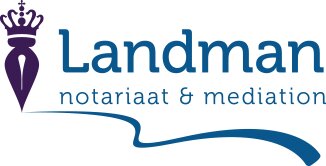Best Nonprofit & Charitable Organizations Lawyers in Meppel
Share your needs with us, get contacted by law firms.
Free. Takes 2 min.
List of the best lawyers in Meppel, Netherlands
About Nonprofit & Charitable Organizations Law in Meppel, Netherlands
Nonprofit and charitable organizations play a crucial role in the social and cultural life of Meppel, a lively city in the province of Drenthe, Netherlands. These organizations, often structured as foundations (stichtingen) or associations (verenigingen), support a wide range of initiatives, including cultural activities, social welfare programs, and environmental projects. Dutch law provides a supportive framework for the establishment and operation of these organizations, ensuring transparency, good governance, and compliance with both national and local regulations. Successful management of a nonprofit or charity requires a clear understanding of local laws, tax obligations, and governance structures specific to the sector in Meppel.
Why You May Need a Lawyer
There are many situations where those involved with a nonprofit or charitable organization in Meppel may require legal assistance. Common scenarios include the formation and registration of a new foundation or association, drafting and amending bylaws, employment and volunteer agreements, regulatory compliance, data protection requirements, handling disputes within governing boards, and navigating the process of acquiring or losing the ANBI (Public Benefit Organization) status. Lawyers with expertise in nonprofit law can also advise on contracts, fundraising rules, intellectual property protection, mergers, and the dissolution of an organization. Legal guidance ensures compliance and minimizes risk, allowing the nonprofit to focus on its mission and impact.
Local Laws Overview
Nonprofit and charitable organizations in Meppel are primarily regulated by national law, with local policies sometimes adding specific requirements. Key legislation includes the Dutch Civil Code, which outlines how to form and manage stichtingen and verenigingen, and the General Data Protection Regulation (GDPR) which impacts the handling of personal data. To qualify for tax advantages such as ANBI status, organizations must meet criteria set by the Dutch Tax and Customs Administration (Belastingdienst). Locally, the municipality of Meppel may have additional requirements for event permits, building use, or subsidies. Transparency requirements, annual reporting, and clear governance structures are all critical factors under both national and local oversight.
Frequently Asked Questions
What types of nonprofit organizations can be established in Meppel?
The most common forms are the stichting (foundation) and vereniging (association). Each has unique legal requirements and governance structures.
What is ANBI status and why is it important?
ANBI stands for "Algemeen Nut Beogende Instelling" or Public Benefit Organization. It allows donors to receive tax benefits and may offer tax advantages to the organization itself.
How do you register a nonprofit organization in Meppel?
Organizations must be registered with the Dutch Chamber of Commerce (Kamer van Koophandel). This process includes submitting governing documents and information about board members.
What are the governance requirements for Meppel nonprofits?
Both associations and foundations must have a board. The board is responsible for day-to-day management and compliance with applicable laws and bylaws.
Are there specific reporting obligations?
Yes, nonprofits must file annual reports and financial statements with the Chamber of Commerce and, in some cases, with the Dutch Tax and Customs Administration if holding ANBI status.
Can a nonprofit employ staff or pay board members?
Yes, but employment contracts must comply with Dutch labor law. Board members of stichtingen (foundations) usually serve without pay, unless the articles of association provide otherwise.
What should organizations know about GDPR compliance?
Nonprofits collecting or processing personal data must comply with GDPR requirements, including data protection policies and informing individuals about their data rights.
How are disputes within a nonprofit resolved?
Disputes are typically resolved through internal procedures set out in the bylaws. If unresolved, they may go to mediation or be settled in court.
Can a foreign entity establish a nonprofit in Meppel?
Yes, foreign entities can establish a nonprofit, but must comply with Dutch legal requirements, including registration and governance rules.
What happens if a nonprofit wants to dissolve?
The dissolution procedure is set out in the organization's bylaws and Dutch law. Remaining assets must usually be used for a public benefit purpose.
Additional Resources
- Kamer van Koophandel (Dutch Chamber of Commerce): Assists with registration and business information - Belastingdienst (Dutch Tax and Customs Administration): Provides information about tax rules and ANBI status - Municipality of Meppel: Offers local permits, subsidies, and information about social initiatives - Toezichthouder ANBI (ANBI Supervisor): For questions about ANBI requirements - Nederlandse Vereniging van Toezichthouders in Zorg en Welzijn (NVTZ): Guidance on governance - Netherlands Bar Association: For finding licensed attorneys with expertise in nonprofit law
Next Steps
If you are starting, managing, or seeking to restructure a nonprofit or charitable organization in Meppel, begin by clarifying your goals and reviewing the type of entity best suited to your needs. Gather the necessary documentation and review regulatory requirements related to registration, governance, and finances. If you encounter complex issues or need to ensure compliance-particularly regarding tax status, contracts, or disputes-consult with a lawyer specializing in nonprofit law. Local legal professionals can provide tailored advice and practical assistance. Contact the Dutch Chamber of Commerce and local government offices for relevant forms and guidelines. In all instances, ensure your organization acts with transparency and in accordance with both national and local regulations to achieve your mission effectively.
Lawzana helps you find the best lawyers and law firms in Meppel through a curated and pre-screened list of qualified legal professionals. Our platform offers rankings and detailed profiles of attorneys and law firms, allowing you to compare based on practice areas, including Nonprofit & Charitable Organizations, experience, and client feedback.
Each profile includes a description of the firm's areas of practice, client reviews, team members and partners, year of establishment, spoken languages, office locations, contact information, social media presence, and any published articles or resources. Most firms on our platform speak English and are experienced in both local and international legal matters.
Get a quote from top-rated law firms in Meppel, Netherlands — quickly, securely, and without unnecessary hassle.
Disclaimer:
The information provided on this page is for general informational purposes only and does not constitute legal advice. While we strive to ensure the accuracy and relevance of the content, legal information may change over time, and interpretations of the law can vary. You should always consult with a qualified legal professional for advice specific to your situation.
We disclaim all liability for actions taken or not taken based on the content of this page. If you believe any information is incorrect or outdated, please contact us, and we will review and update it where appropriate.









